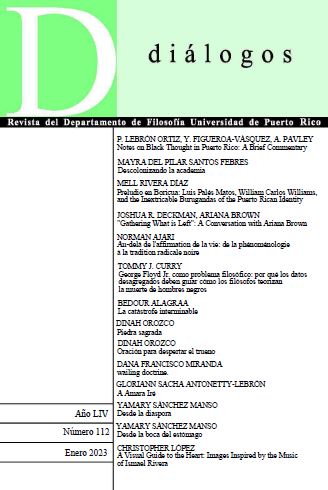Abstract
The scope of this article is twofold. First, it
reconstructs Africana phenomenology, retracing Lewis R.
Gordon’s philosophical elaborations, accounting for the
influence of figures such as Frantz Fanon, Jean-Paul Sartre,
and Søren Kierkegaard. We show how Gordon’s recasting
the Husserlian notion of bracketing impacts political
thought and social criticism. Second, we evidence in
Gordon as well as in many prominent contemporary Black
intellectual figures a preferential option for a radical
democratic politics that emphasizes creativity and coalition
over enmity and opposition. Finally, this article argues that
while notions of violence and self-determination are not
popular within current Black thought, they are intrinsically
part of the Black radical tradition. Therefore, they should be
reinvested by Africana philosophy and phenomenology.

This work is licensed under a Creative Commons Attribution-NonCommercial 4.0 International License.

